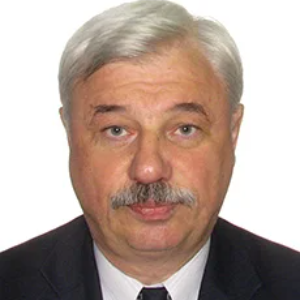Title : Prospects of carbon nanoenergy
Abstract:
The prospects of carbon nanoenergy, including hydrocarbon energy, the use of carbon nanotubes, and the energy of gas hydrates are considered. It is shown that the features of all types of carbon materials are determined at the nanoscale and that modern energy criteria determine the development of nanoenergy as one of the most important areas of application of nanotechnology in the global economy. The renewable nature of hydrocarbon resources due to the carbon cycle is noted. There has been a great increase in interest in carbon energy in terms of its competition with renewable sources of alternative energy - wind, solar, and "green" (various algae). The question will probably be resolved as follows – which type of energy will be cheaper and provide technological needs. After all, a lower price per kilowatt-hour is not the only criterion of advantage – the ability to implement a forced engine operation mode and the possibility of delivering various types of energy carriers to the consumer (logistics) are also important.
The development of nanotechnology in the VI technological order is promising in the field of new environmental management, which means that new nanotechnology in use will be a commodity product of the VI technological order. Modern energy criteria determine the development of carbon nanoenergy as one of the most important areas of application of nanotechnology in the global economy. Oil, gas, coal, carbon nanotubes, gas hydrates are all carbon nanoobjects. Oil and gas consist of a number of nanocomponents, such as various gases, resins, and paraffins. It is the nanoscale features of these components of hydrocarbon energy carriers that determine the efficiency of their production and use both in energy processes and in petrochemical processes, allowing them to be used to produce petrochemical products, including for the manufacture of components of a number of equipment elements of renewable energy sources. Methane gas hydrate (methanhydrate) It is also a nanoobject. The release of methane from methanhydrates requires about 15 times less energy than the thermal energy contained in the methane itself.
Nanotechnology allows us to propose new approaches to the development of gas hydrate deposits and shift the boundaries of the stability of methane gas hydrate up the temperature scale. According to OPEC, by the end of 2020, oil consumption in the world was distributed by sectors as follows: 54% of consumption is accounted for by transport, 14% – by the chemical industry, 12% - by the agricultural industry, utilities and trade, 6% – by electricity generation, 14% – by other types industries. Even if it is possible to gradually completely switch transport, agriculture and electricity production to renewable sources, more than a third of oil consumption will still remain in other areas. Many elements of the equipment for green energy are made using hydrocarbon products. It is the symbiosis of engineering solutions in the oil and gas sector and in the "green" energy sector that oil and gas engineers are already starting to work in, gradually improving their skills, acquiring new knowledge and developing new technologies.
Audience Take Away:
- Components of carbon nanoenergy
- Carbon objects as nanoobjects
- The importance of hydrocarbon energy
- The use of carbon materials in green energy
- The carbon cycle in nature



